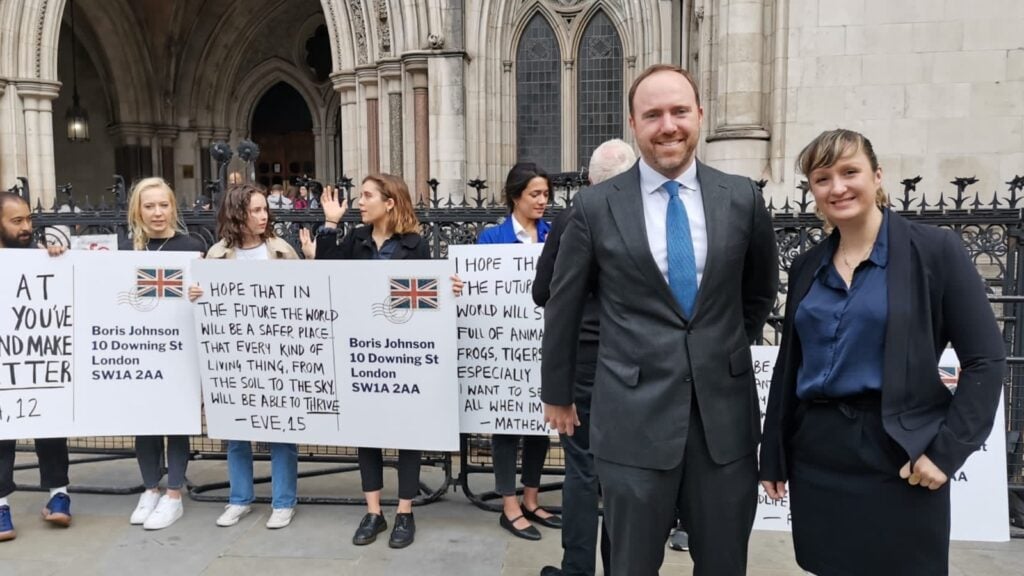Environmental charity ClientEarth has won a landmark High Court case against the UK government.
Teaming up with Friends of the Earth and the Good Law Project, it launched an accusation of policy failure, tantamount to a breach of the 2008 Climate Change Act.
ClientEarth won its case. It demonstrated that the government had failed to prove how emissions policies will tally up with carbon budgets on the road to net zero.
Supplementary concerns included a lack of transparent information, which would allow for scrutiny from parliament and the general public.
A win for ClientEarth means that the government is in breach of the Climate Change Act. It now has eight months to update its climate strategy. It will need to include quantifiable methods for attaining emissions reduction targets.
Existing scientific reports have already recommended a shift towards plant-based foods as a viable method for cutting national emissions. A vegan diet is reportedly the best way to help the planet, according to an analysis of farming’s environmental impact.
The UK government’s climate shortcomings
The case proved that the government’s net zero strategies excluded “significant detail.” This led to plans being unfairly exempt from scrutiny.
Crucially, plans were found to add up to just 95 percent of emissions reductions necessary to meet the current carbon budget. The net-zero strategy failed to be amended.
“We were surprised with the extent of critical information revealed in court, when it should have been available to the public from the outset,” Sophie Marjanac, a lawyer for ClientEarth said in a statement.
She added: “The fact that it has only seen the light of day because of our lawsuit reveals a concerning lack of transparency.”
Key findings from the ruling
The High Court found that the government’s net zero strategy does not align with obligations under the Climate Change Act. Moreover, policies did not clearly demonstrate how net zero will be attained.
Further, the public and parliament were unaware that the strategy would inevitably fall short. Civil servants knew about the shortcomings, having completed calculations that revealed the deficiency in necessary emissions reductions.
Greg Hands, the Minister for Business, Energy, and Industrial Strategy, signed off the net zero strategy. He is reported to have done so without having all of the legally required information to hand.
As a result, the government now has to update all relevant policies and strategies. Making them available for full scrutiny by parliament is a priority.
The updated plan will also have to withstand detailed analysis from the Climate Change Committee (CCC).
A significant victory for ClientEarth
The charity launched its legal bid in January 2022. It followed concerns surrounding the government’s net zero strategy and its reliance on unproven technologies, as well as its ignorance of viable solutions suggested by the CCC.
Further, rising energy bills alerted ClientEarth to government failings. As home insulation plans and low carbon heating schemes failed to materialize at scale, suspicions grew.
The UK committed to reducing its emissions by at least 68 percent by 2030, from 1990 levels. The budget forms part of the UK’s “Nationally Determined Contribution,” as part of the Paris Agreement that hopes to limit global warming to 1.5°C.
“It’s not enough for the UK government simply to have a net zero strategy, it needs to include real-world policies that ensure it succeeds. Anything less is a breach of its legal duties and amounts to greenwashing and climate delay,” said Sam Hunter-Jones, a lawyer for ClientEarth.






